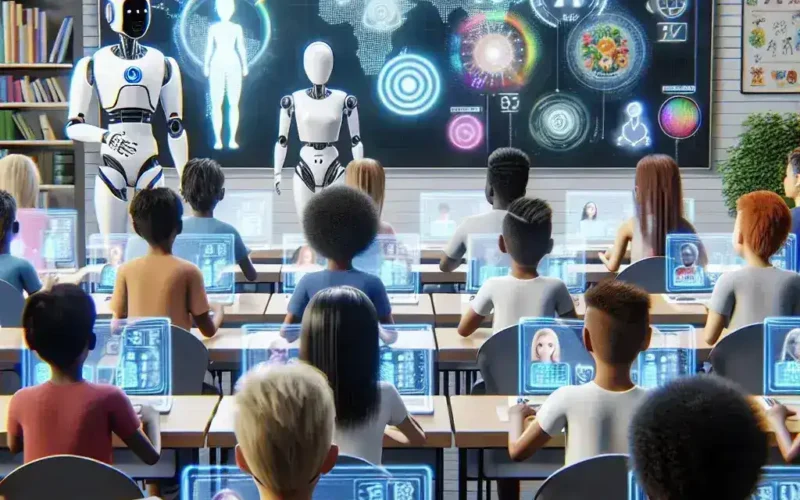Introduction
Artificial Intelligence (AI) is rapidly transforming the landscape of education by enabling personalized learning experiences tailored to each student’s unique needs. This shift from traditional one-size-fits-all approaches to customized education models is enhancing student engagement, improving learning outcomes, and preparing learners for a technology-driven future.
The Evolution of Personalized Education
Historically, education systems have relied on standardized curricula and teaching methods. However, with the advent of AI, educators can now leverage data-driven insights to customize learning paths. AI tools analyze student performance, learning styles, and preferences to create individualized learning plans, ensuring that each student receives the support they need to excel.
AI-Powered Learning Platforms
Platforms like Khan Academy and Coursera utilize AI to recommend courses and resources based on a student’s progress and interests. These systems adapt in real-time, providing additional materials or alternative explanations when a student struggles with a particular concept.
Benefits of AI in Personalized Education
- Enhanced Engagement: Interactive AI-driven tools keep students engaged by offering personalized content that resonates with their interests.
- Improved Outcomes: Tailored learning experiences help students grasp complex subjects more effectively, leading to better academic performance.
- Accessibility: AI can provide support for students with disabilities by offering adaptive learning materials and assistive technologies.
Real-World Applications
One notable example is the use of AI in adaptive learning software like DreamBox and Smart Sparrow. These platforms adjust the difficulty level of tasks in real-time based on student responses, ensuring that learners are neither bored nor overwhelmed.
Case Study: AI in Language Learning
Duolingo employs AI to personalize language lessons, adapting to the user’s proficiency level and learning pace. This approach has significantly increased user retention and language acquisition rates.
Challenges and Considerations
While AI offers numerous benefits, it also presents challenges. Data privacy is a major concern, as educational AI systems collect vast amounts of student data. Ensuring the security and ethical use of this data is paramount.
Addressing the Digital Divide
Access to AI-powered education tools is not uniform across different socio-economic groups. Efforts must be made to bridge this digital divide to ensure equitable educational opportunities for all students.
Future Predictions
The future of personalized education with AI looks promising. Advances in machine learning and natural language processing are expected to create even more sophisticated and intuitive educational tools. These developments will further enhance the ability to cater to individual learning needs and styles.
AI and Lifelong Learning
As the job market continues to evolve, AI will play a crucial role in facilitating lifelong learning. Personalized education platforms will help individuals continuously update their skills, ensuring they remain competitive in their careers.
Expert Insights
Dr. Jane Smith, an education technology expert, states, “AI has the potential to revolutionize education by making learning more personalized and accessible. However, it’s essential to address the ethical implications and ensure that these technologies are used responsibly.”
Conclusion
AI is undeniably transforming personalized education, offering tailored learning experiences that cater to the unique needs of each student. While challenges such as data privacy and accessibility must be addressed, the benefits of AI in education are vast. As technology continues to advance, AI will play an increasingly integral role in shaping the future of education, making learning more effective and inclusive for all.

